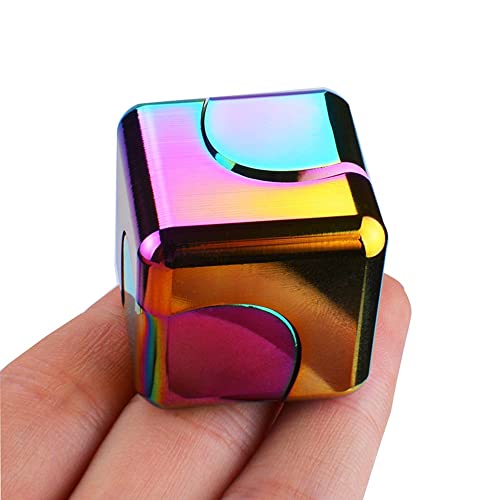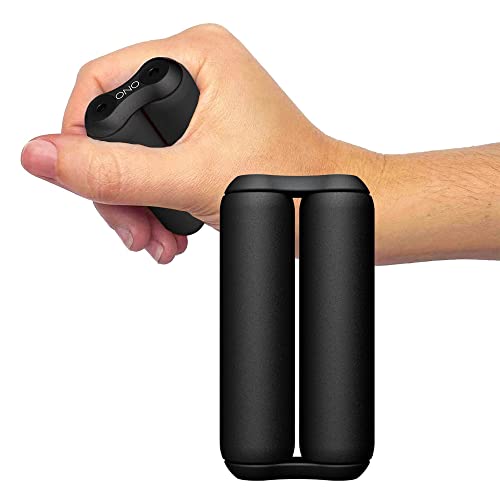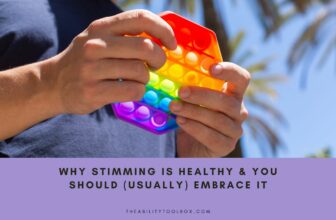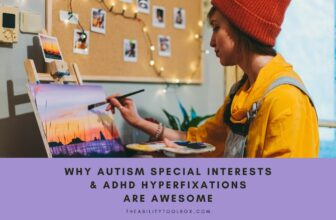
I learned that I have sensory processing issues when I was a kid. The doctors told me it was a key feature of my dyspraxia diagnosis. According to the Star Institute:
Individuals with dyspraxia have trouble processing sensory information correctly. This results in problems planning and carrying out new motor actions.
In September 2022, I published my book, Stumbling Through Space and Time: Living Life with Dyspraxia. A key discussion topic of the book is my experiences with sensory processing issues.
In my book, here's how I describe sensory processing issues
First, my energy rapidly drains. Then the anxiety kicks in and impairs my ability to judge and react to my environment. Physical symptoms happen, too, which is a direct reaction to everything being too much to take in. The physical symptoms often include a combination of head and stomach aches. What I am describing is what's often referred to as sensory overload. This happens when the brain processes more sensory input than it can handle.
During the worst sensory overload experience I have ever had, I had to leave a crowded lecture hall. I felt a full-blown panic attack coming on. After finding a quiet place to breathe and decompress, I decided I didn't want to go back in there. Soon after that experience, going back in there felt so intimidating that I dropped the class quietly online. I knew it meant I had to do an extra year at college. Escaping a noisy, crowded environment seemed much more urgent at that moment.
Sensory processing basics
Everyone has different experiences with sensory processing issues. There is no such thing as one trigger that affects everyone. You are either hypersensitive or hyposensitive to stimuli. If you are hypersensitive to stimuli, you're easily overstimulated by your surroundings.
If you are hyposensitive, your surroundings under-stimulate you, and you always need more sensory input. This may come across as hyperactivity to an outside observer. Sensory processing issues are also interconnected with all five senses. Sensitivities are also highly individualized. Sensitivity triggers often include specific fabrics, sounds, lights, and tastes.
Recommendations for hypersensitive people with sensory processing issues
Hypersensitivity limits how much stimuli you can take in. Once you exceed your limit, your focus, energy, and functioning decrease. Everything is an exercise in moderation. Here's an example of what I mean by that.
Let's pretend your plans for today are grocery shopping after work and having some scheduled Zoom meetings during work hours. Doing both on the same day will have a negative effect on your basic functioning. There are crowds, complex instructions, and short-distance travel to navigate. There are also many noises, smells, and textures to deal with.
Life doesn't always allow you to absorb sensory input in moderation. For situations like this, you can always find ways to reduce how much sensory information you are taking in. Noise-canceling headphones are the obvious choice, but they can get expensive. In public, the headphones can take away your peripheral awareness. The temptation is to blare your music loud enough to block out other noises. That's terrible for your hearing. Many earplug options are now available for people with sensory issues. Earplugs for people with sensory processing issues reduce the volume of background noise. You can still hear what's going right in front of you, but everything further off in the distance is much quieter.
The pair I use to tackle the sensory challenges are Vibes earplugs. Many of my neurodivergent friends have had good experiences with Loop earplugs.
Recommendations for hyposensitive people with sensory processing issues
When you're hyposensitive to stimuli, a lack of stimuli can hinder your focus. A widely accessible option is loud ambient noise (background noise) soundtrack. I have seen ambient noise soundtracks show up everywhere, from YouTube to Headspace. Yet, many websites also have in-depth archives of different ambient noise recordings.
Often, bringing further stimuli into your environment improves your focus and mood. Examples include rocking back and forth and tapping against hard surfaces. Bringing something tactile into the equation can often help. Chew toys, fidget spinners, and slime are popular options for addressing hyposensitivity.
Accepting your preferences in a world that isn't well-designed for neurodivergence
Many of us have faced pressure to seem neurotypical from afar. This is often referred to as “masking” our neurodivergence. Masking is when you mimic and perform neurotypical behavior to blend in. Not only is that exhausting, but it's horrible for your mental health.
Devon Price's Unmasking Autism is a helpful introduction to the effects of masking. Price identifies how challenging unmasking can be:
Unmasking in public feels impossible. When we are around people, it's as if we have no thoughts or feelings of our own. I've been in that position myself where I'm so inhibited that I had no idea what my genuine preferences are.
There is no simple answer to unlearning the habit of masking in all aspects of life. The one thing you can do is pay attention to what environments help you produce your best work. Some people will react with indifference and disbelief. But some people will listen to you and make necessary adjustments.
Reflections on how well-intended people often react to sensory processing issues
Sensory processing symptoms often come with other people asking what they can do. As much as I appreciate other people's concerns, their worry makes me much more worried. That often amplifies my symptoms even further.
Sensory overload makes it challenging for me to convert thoughts into words. I may be able to manage nodding my head, pointing, mumbling, or saying half a sentence or word, but that's about it. To work around that, I have taught people I am closest to how to understand my symptoms and how to tackle them:
Getting somewhere a lot quieter and getting some rest as soon as possible. Nothing quite signals comfort like an in-depth description of what will happen next.
In a perfect world, every environment would be sensory-friendly and have the education and resources to make that happen. Unfortunately, we're not there yet. If we finally get to that point, people with sensory issues can work, shop, and enjoy their surroundings without experiencing stress or requiring assistance.
I am unsure if that day will ever come. Yet surrounding myself with people who know how to support me through my sensory issues makes the uncertainty of my sensory issues so much easier to deal with.
Learn More About Living with Dyspraxia and Sensory Processing Disorder
If what Rosemary has written resonates with your experiences, check out her book:
…and these other peer-recommended titles.
More Autism & Neurodiversity Resources in The Ability Toolbox
- Calm Strips: A Complete Guide to Fidget Stickers for Anxiety, Autism, & ADHD
- The Ultimate Executive Dysfunction Self-Help Guide: Coping Skills to Help You Thrive
- All About Autism Masking and Camouflaging
- Sensory Lights for Autism and ADHD: A Guide
- Awesome Autism Books Written by Actually Autistic Authors
Photo by elifskies via Pexels.
Rosemary Richings is a writer and editor specializing in neurodiversity, mental health, and disability-related topics and issues. As a neurodivergent dyspraxic, my work is entirely from a lived experience perspective. Rosemary's work has been featured in Shape Magazine, Travel + Leisure, The Luupe, The Saatva Mattress Company blog, and a long list of other websites. Her debut novel: "Stumbling Through Space and Time: Living Life With Dyspraxia", is now available at a bookstore near you. Currently, Rosemary is serving on the board of trustees of Dyspraxic Me, a charity for dyspraxic young adults.





















